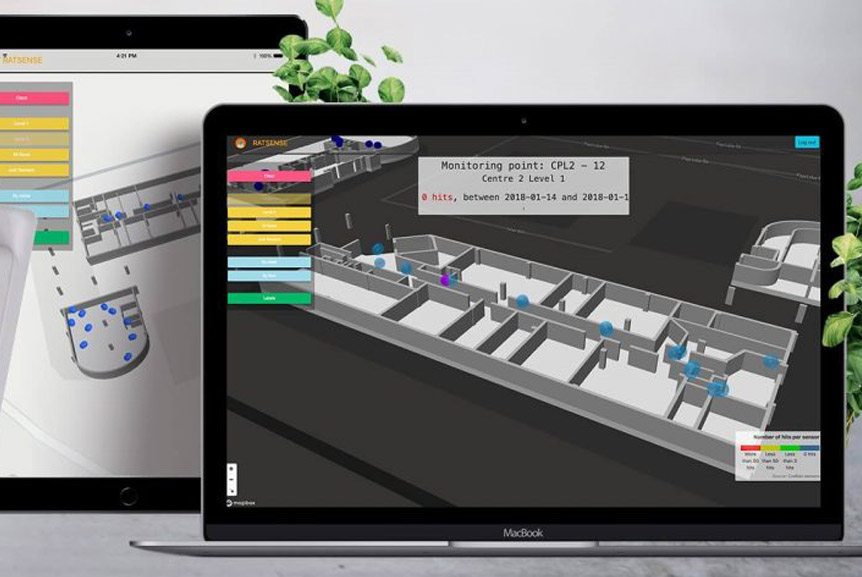For Singaporeans, pesky rats aren’t an uncommon, but not totally unfamiliar sight.
Sometimes when you’re just eating at the hawker centre at night and one casually scuttles by, making you momentarily question the food on your table.
Or maybe your keen eyes happen to spot glowing eyes in the crevices of the wet market, animalistic instincts primed for the perfect moment to take a nibble out of any fallouts.
Even in urban cities like Singapore, rats are not completely unavoidable when there are occasional instances of overflowing trash or unmanaged disposal bins.
At least it’s nothing like New York’s subway system, they have entire colonies down there, I swear.
National Environment Agency (NEA) Deploys Rat Surveillance Technology
Recently, the National Environment Agency (NEA) has started fitting batches of rat surveillance technology which are capable of remotely detecting rodents.
In a response to The Straits Times, NEA explains that it’s part of a two-year project where sensors, cameras, and smart traps will be installed to enhance the whole framework’s capabilities through a “progressive and careful” incorporation, wherever applicable.
There will be approximately 20 deployments of said surveillance technology this month, beginning with markets and hawker centres.

Through this initial trial, NEA will observe and analyse the dependability of the deployments and intermittently review possible new technology that can be adopted.
Additionally, NEA stated that it will continue to work closely with its stakeholders on rat control, through protocols like ensuring good hygiene and sanitary habits, proper disposal of food sources and wiping out any areas of garbage accumulation.
For the rat surveillance technology to exhibit its full capabilities, NEA also said, “Stakeholders must ensure that control measures are sustained, as rats propagate quickly conducive conditions.”
Um, no kidding, did you know that an adult female rat can produce an average of 40 rat babies a year, and are able to conceive again 48 hours after giving birth in favourable conditions?
Just thinking about it makes my body hurt, but evolution seriously needs to take a slow down on the productiveness of these pests.
Join our Telegram channel for more entertaining and informative articles at https://t.me/goodyfeedsg or download the Goody Feed app here: https://goodyfeed.com/app/
Ratsense the Rodent Surveillance System
Well, no one can’t say that the name isn’t straightforward.
According to the documents found on the government e-portal GeBiz, the tender for rat surveillance was given to pest control company Origin Exterminators, under the brand name of Ratsense.
The General Manager of Ratsense, Derek Tong, disclosed that project involved the equipping of infrared motion sensors in targeted nooks and crannies, like pipes and cable trunkings, where rodents tend to hide in.
The installation decisions were made based on their gathered understanding of rodent behaviour, like where the places they tend to frequent, their preferred food sources and breeding locations.
Since Singapore has two main rodent species, the roof rats and sewer rats, the surveillance system will be installed on high ceilings to capture their movements on both higher and lower grounds.

The Finer Hairs of Ratsense
The infrared motion sensors will assist in detecting rodent presence through the changes of temperature in certain areas.
In order to differentiate between rodents and other pests such as cockroaches and lizards, the movement detected by the surveillance will be compared to algorithms that mimic a rodent’s signature movements.
Mr Tong added, “The algorithms, which we will continually fine-tune through our years of rodent surveillance in places like shopping malls, allow us to generate the required analytics.”
Quite evidently, this project has been years in its making.
The Origin Exterminators has previously worked with Jewel at Changi Airport and the Singapore Sports Hub to install similar monitoring systems before.
Hence, starting from February 14, Ratsense will install the sensors for a specific amount of time, study the data collected, and then inform the site owners if any rectifications of their operations are necessary.
Another key feature of Ratsense is that it makes use of Internet-of-Things (IoT) devices, which is a type of communication system defined by its low-power and wide-area network, which widens its coverage to both the outdoors and indoors.
IoT solutions are more feasible than Wi-Fi powered sensors, because the latter would require several routers to be installed on site, which might prove difficult in places that lack power sources.
As a whole, Ratsense intends to pre-empt rat infestations before they occur, which is a step-up from the old reactive measures where pest control would only be called in after a rat infestation has occurred.
The surveillance systems will hopefully allow pest control companies and stakeholders to smother the problem in the cradle before any damage is done.
Here’s to hoping that everything works out well, because one less problem is always better than having one more; having to rat out these pests after you see a hoard of them definitely isn’t how any one wants to start their day.
Read Also:
- S’pore Study Shows Getting A Different Brand mRNA Booster Shot Can Reduce Risk of COVID-19 Infection
- Mum Couldn’t Recognise Her Daughter Who Returned to M’sia After 735 Days in S’pore
- NYT Finally Takes Down S’porean Curry Chicken Video But They Didn’t Address the Core Issue
- NTUC FairPrice Will Now Check Scales Daily After Viral Videos of Wrong Weight Labels
Featured Image: Ratsense




